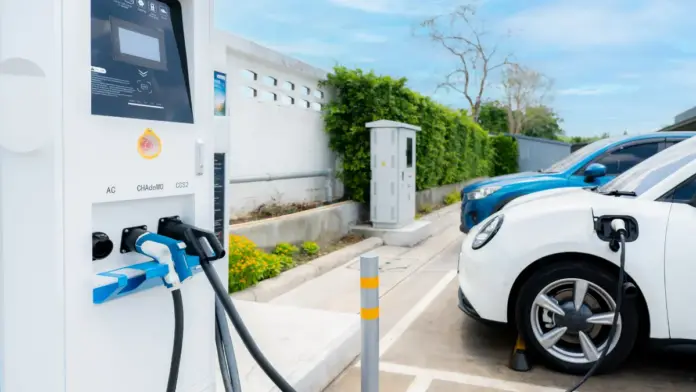Electric vehicles (EVs) have been hailed as the future of transportation due to their environmental friendliness and energy efficiency. However, one of the primary concerns for potential EV owners has been the time it takes to charge their vehicles. To address this challenge, significant advancements have been made in electric car charger technology, particularly in the realm of fast charging. In this blog, we will explore the latest innovations in electric car chargers, focusing on fast charging solutions that are revolutionizing the EV industry.
The Need for Fast Charging
As the popularity of electric vehicles continues to rise, so does the demand for faster charging solutions. Traditional charging methods, such as Level 1 and Level 2 chargers, can take several hours to fully charge an EV battery, which can be inconvenient for drivers, especially during long journeys. Fast charging technology aims to reduce charging times significantly, making electric vehicles more practical and appealing to a wider audience.
Key Innovations in Fast Charging
High-Power Charging Stations
High-power charging stations, also known as DC fast chargers, are capable of delivering a large amount of power to an electric vehicle’s battery in a relatively short amount of time. These chargers can operate at power levels of 50 kW or higher, allowing EV owners to charge their vehicles much faster than with traditional chargers. Companies like Tesla, Electrify America, and EVgo have been deploying high-power charging networks across the globe, enabling EV drivers to recharge their vehicles quickly and conveniently.
Battery Technology Advancements
Advancements in battery technology have played a crucial role in improving fast charging capabilities. Lithium-ion batteries, which are commonly used in electric vehicles, have become more energy-dense and efficient, allowing them to accept higher charging currents without compromising their longevity. Additionally, the development of new battery chemistries, such as solid-state batteries, promises even faster charging speeds and increased energy storage capacities in the future.
Liquid-Cooled Charging Cables
One of the limitations of fast charging is the heat generated during the charging process, which can degrade the performance and lifespan of both the charger and the vehicle’s battery. To address this issue, manufacturers have developed liquid-cooled charging cables that dissipate heat more effectively, allowing for faster and more efficient charging. These cables are designed to withstand high power levels while maintaining optimal temperature conditions, ensuring a reliable charging experience for EV owners.
Bidirectional Charging Technology
Bidirectional charging technology, also known as vehicle-to-grid (V2G) or vehicle-to-home (V2H) systems, enables electric vehicles to not only receive power from the grid but also to send power back to the grid or to a home during peak demand periods. This innovative technology not only provides EV owners with greater flexibility and control over their energy usage but also helps to stabilize the grid and reduce electricity costs for consumers. With bidirectional charging, electric vehicles can serve as mobile energy storage units, contributing to a more sustainable and resilient energy infrastructure.
Artificial Intelligence Integration
Artificial intelligence (AI) is increasingly being integrated into electric car charger technology to optimize charging efficiency and performance. AI algorithms can analyze various factors such as battery state of charge, ambient temperature, and grid demand to determine the optimal charging rate and schedule for each vehicle. By leveraging AI, fast chargers can minimize charging times while maximizing battery health and longevity, providing a seamless charging experience for EV owners.
Benefits of Fast Charging
The widespread adoption of fast charging technology offers numerous benefits for electric vehicle owners, as well as the broader society:
- Convenience: Fast chargers allow EV drivers to recharge their vehicles quickly, reducing downtime and enabling longer trips without the need for extended charging stops.
- Accessibility: The expansion of high-power charging networks makes it easier for EV owners to find charging stations wherever they go, increasing the accessibility and usability of electric vehicles.
- Environmental Impact: By encouraging more people to switch to electric vehicles, fast-charging technology helps reduce greenhouse gas emissions and air pollution, contributing to a cleaner and healthier environment.
- Grid Resilience: Bidirectional charging technology enhances grid resilience by enabling electric vehicles to support the grid during peak demand periods or emergencies, reducing the need for costly grid infrastructure upgrades.
Conclusion
Fast charging technology represents a significant advancement in electric car charger technology, offering EV owners a convenient, efficient, and sustainable way to power their vehicles. With innovations such as high-power charging stations, liquid-cooled charging cables, bidirectional charging, and AI integration, the future of electric vehicle charging looks brighter than ever. As the EV industry continues to evolve, fast charging will play a crucial role in accelerating the transition to a cleaner, greener transportation future.
In summary, fast charging is not just about reducing charging times; it’s about transforming the way we think about transportation and energy consumption, paving the way for a more sustainable and electrified future.



